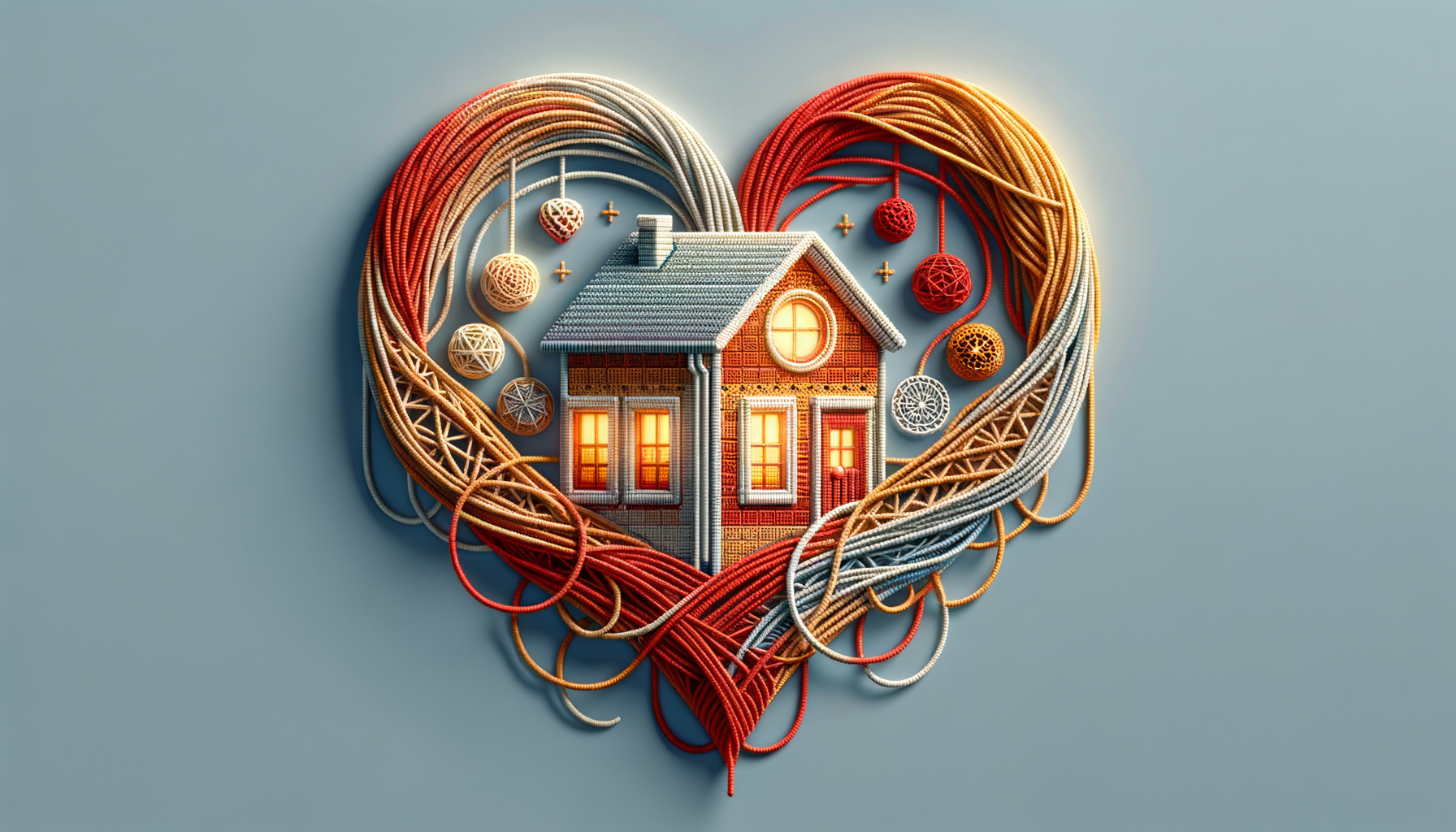Growing up in Houston’s East End was like living inside a telenovela: loud, chaotic, heartfelt, and at times, overwhelming. It was home, in every sense of the word, but let’s be real—home isn’t always a place that hugs you back. Sometimes it smothers you in the well-meaning embrace of chisme-fueled aunties and unsolicited advice about everything from your career (“Mija, why not law school?”) to why you’re not married yet. My love for my hometown runs deep, but it’s tangled with a fair share of side-eye-worthy moments.
For anyone out there caught in a tug-of-war with where you grew up, let’s explore what it means to love (but sometimes low-key resent) the place that made you who you are.
Ghosts of Childhood Awkwardness Past
Here’s the thing about going back to where you’re from: it’s impossible to separate the present from who you used to be. In the East End, I can’t walk two blocks without finding a piece of my awkward teenage self lying around. There’s the taqueria where my high school crush worked, and I ate way too many tacos just to exchange a few words with him. (Spoiler: It never went anywhere, but I got three solid years of life-changing barbacoa out of it.) There's the park where we had one disastrous family reunion featuring my Tío Roberto’s failed attempt at karaoke, which still lives on in legend.
Home has a memory, and it doesn’t let you forget—even the things you’d pay good money to erase. But honestly? That’s part of its charm. It keeps you grounded. Whenever I catch myself reminiscing about my “glow-up,” I pass by the corner store where I used to buy Hot Cheetos with my allowance and remember that puberty was neither quick nor kind. You can’t erase the awkward memories, so why not let them be the seasoning to your hometown experience? Much like the perfect taco, they’re what make it interesting.
The Double-Edged Sword of Community
The East End taught me about connection—the good kind where neighbors wave to each other and drop off homemade empanadas. It’s the kind of place where grocery store clerks remember your mom’s favorite brand of tortillas. But let’s not forget the bad kind of connection: like the señora who magically knows about your latest breakup before you’ve even had a chance to tell your best friend.
Living in a tight-knit community is like having your dating life on blast 24/7. When I brought home a college boyfriend once, the entire block seemed to telepathically sense his presence. My abuela asked me what his job prospects were within five minutes of meeting him, and one nosy neighbor casually dropped, “¿Es católico?” just as we were getting out of my car. Let’s just say he didn’t make it past the tamale test.
But here’s what I’ve learned: people will always have opinions. Sometimes they’re obnoxiously loud, but more often than not, they’re rooted in good intentions. These same nosy señoras? They’re the ones who checked on my mom like clockwork when she was recovering from surgery. And in their own hilariously invasive way, they’re part of what makes “home” feel like an unshakable foundation.
The Friendships That Stay and Stray
Relationships you build at home are a mixed bag. Some friendships weather everything—time, distance, and even that weird period when everyone’s MSN Messenger statuses were cryptic lyrics from emo songs. Others naturally fade after high school or college, like the acquaintance who only reappears on social media to sell you multivitamins.
What I’ve realized is that the staying friendships are golden, and part of what makes home worth the occasional eye-roll moment. My best friend from high school, Sofia, still calls me to recap family drama and life updates—half the time while hiding out in her car to escape her toddlers for five minutes. We connect over shared memories of East End adventures, even if life has pulled us in different directions.
Not all connections will last forever, and that’s okay. The people you let go of aren’t erased—they’re just part of the patchwork quilt of your past that stays stitched into your hometown narrative.
Lessons in Love, Learned Locally
The East End doesn’t do subtlety, especially when it comes to love and relationships. Valentine’s Day in high school was an over-the-top affair, with boys parading down the hallway carrying giant teddy bears and balloons. Meanwhile, my first love showed up to class with a lukewarm cupcake, which I now understand was its own adorable form of effort. (If you’re reading this, thanks, Marco. The frosting was decent.)
It’s impossible not to compare the flashy expectations we grow up around to the quieter, more nuanced reality of modern relationships. Here’s what home taught me: you don’t need grand gestures to know someone’s worth keeping around. My dad has been showing my mom love for decades by fixing her coffee exactly the way she likes it—light on the cream, heavy on the sugar. And my mom? She shows love by giving him one-third of her pan dulce instead of the usual two bites she offers the rest of us.
Love is layered, like the perfect pastelito. And honestly, growing up in such a boisterous, demonstrative place helped me recognize when love shows up in quieter forms—through action, reliability, and knowing exactly how each other takes their cafecito.
Reconciling the Push/Pull of Home
Every time I think I’ve outgrown feeling overwhelmed by my hometown, some little detail pulls me back. Like when I hear Marc Anthony on the radio while driving down Harrisburg Boulevard—that’s an instant playlist to my childhood. Or when I visit Panadería Tierra Caliente and the smell of fresh conchas reminds me of Sunday mornings with my family.
Still, there are moments of frustration: The traffic is horrendous. Our streets could use some TLC. And if one more person tries to set me up with “a nice guy from church,” I might move far, far away for real. But the truth is, the East End doesn’t let go of you easily. It’s stubborn, just like me.
Home is Messy, and That’s Okay
The thing I’ve learned—both from navigating relationships and my complicated feelings about home—is that you can love something even when it drives you absolutely bananas. Houston’s East End is like that family member who’s delightfully over-the-top but occasionally impossible to handle. It’s imperfect in the same way most relationships are, but in the end, there’s no other place that feels...well, as me as here.
So, in my slow dance with home—with all its quirks, frustrations, and relentless affection—I’ve found a version of “home” that works for me. And it turns out that your love/hate relationship with home isn’t all that different from how you approach matters of the heart: with a little patience, humor, and the willingness to embrace the awkward messiness.




















